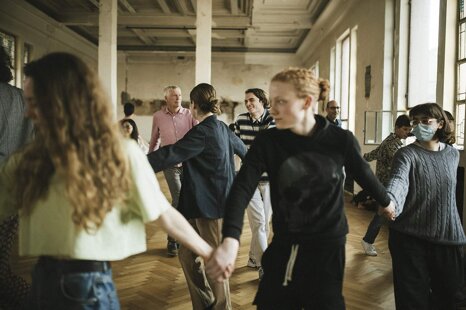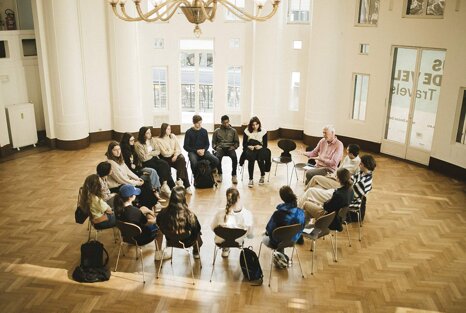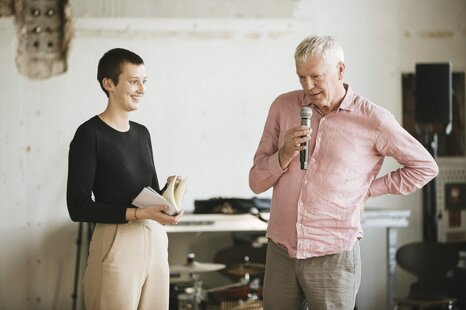postmaster@museumofanthropocenetechnology.org
via Leggiuno 32
2014 Laveno Mombello
Italia
NEXT GENERATION, PLEASE!
(reflection after participating in the Next Generation, Please! event at BOZAR -Brussels, on 24 March 2022)

Poster BOZAR
Poster BOZAR
I participated in the event “Next Generation,Please!”, organised by the Centre for Fine Arts / BOZAR in Brussels, in which I was acting as “the climatologist”. I was supposed to listen and give comments to proposals made by high school students for a festival that would mix climate science and art to express their awareness about climate change, but not only: issues like gender, inequality, activism, revolt in general also came up. It was exactly one month after the invasion of Putin into Ukraine.
Since a while, during similar events, I have been asking students why they were raising awareness about climate change. I asked them to be explicit and tell why they were doing what they were doing, which is not always an easy thing to do, but a prerequisite for being credible. I explained that for my generation, when we were in high school, there was no climate change problem yet. The first warnings had just appeared in the scientific literature, and more scientists, including myself, decided to dedicate a scientific career in studying this issue. It would take a few decades more before climate change was taking up by mainstream media and eventually by decision makers in industry and politics. So our generation had to realise that climate change was indeed a problem: realise in the very sense of making the issue a reality. For us scientists, who eventually understood how emissions of greenhouse gases were changing climate in a dangerous direction, it was only logical to conclude that something needed to be done about it. When I asked the students in Brussels why they thought climate change is important, they were startled: of course it is important, how can you doubt about this, we must act, change, it is our future, … . The students participating in the event were only a small sample of the Belgian youth, and possibly, since they were participating, they had a larger than average interest in the issue. But anyway, I came again to realise that these youngsters had heard about climate change all of their young lives; that the issue had been fed to them together with the mother milk, so to speak, and certainly school education had explained the issue rather well. If Greta Thunberg, 4 years ago already, had been able to create an avalanche in awareness among the youth, it is also because that youth was somehow prepared, consciously or unconsciously. That was my conclusion: we climatologists can now retire, or, if we are not ready for that, change jobs.
And that is what I decided to do after the event in Brussels, where I was invited as “the climatologist” but also as the representative of the previous generation. During the discussions the students openly said that they would no longer live the way their parents had lived. I was sitting there and did not even smile. They were right: our generation could as well be scrapped, next generation please! But rather than being scrapped by these youngsters, I prefer to scrap myself as “the climatologist”. The climatologists, those who have understood how the climate system works and how we are changing it, had indeed done their job, and done it well. Solving the problem is now a task for many different sorts of people. I will not retire, only change job and continue as an “extended climatologist” as I called myself once, or, which is actually the case, as the director of the Museum of Anthropocene Technology, which allows me to deal with the issues of our times through objects rather than words.


Warming up
Discussing

foto's © Caroline Lessire
Wrapping up with Lola Segers